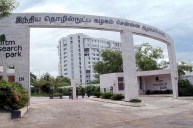The NEET UG 2025 results are now out from the National Testing Agency, and a whopping 12.36 lakh students have qualified for admission to medical colleges in India. As you embark on the journey of selecting your college, there are a number of key factors you must assess that will impact your educational experience and your professional career such as accreditation, curriculum, college infrastructure, faculty, admission process, fee structure, internship opportunities, college location and placement record.
Prior To Concluding Your MBBS Admission, There Are 10 Key Areas To Examine:
Research
Conduct internet research by visiting the colleges’ official website, checking out alumni reviews, and visiting the social media pages and student forums of these colleges for a better idea of your options.
Accreditation, Rankings And Recognition
Every medical’s college are not the same. Examine if it’s recognised by NMC, look at the NIRF ranking and see if it is affiliated to some good university.
Curriculum And Specialisations
Study curriculum of various colleges, look at the subjects offered, specialisations and basis of clinical exposure whether for a government or private medical college.
Infrastructure And Facilities
The learning environment can have a substantial impact on your experience. Make sure the college has:
• Modern laboratories
• Dissection halls
• Sports and recreation facilities
• Clean and safe hostels
• Access to libraries and the internet
These are all required for academic life to be smooth and fruitful.
Admission Process
Government medical colleges can be very competitive (with lower fees), while private colleges can be a good option if cost is not an issue. Be aware of each college and their cutoffs, reservation practices, and admission procedures.
Faculty Quality
Quality of instruction is crucial. Look behind the qualifications and experience of the faculty, student-to-teacher ratio, and the teaching styles they use. Online properties and alumni can assist you with this.
Medical College Fees In India
Pursuing MBBS is a significant financial hurdle. Remember to check:
– Tuition and hostel fees
– Admission and security deposits
– Mess and library deposits
Avoid cash transactions and make sure you always send bank transfers and maintain documentation of it.
Internships And Clinical Exposure
Clinical rotations are an important component to medical education. Be certain the colleges you are looking at have:
– Solid affiliations to hospitals
– Regular internships
– Ensure that the rotations have hands-on experience in the different departments.
Location Area
Think about the location of the college-distance from home, local transport, climate, local language, safety etc. These factors can influence your comfort and performance.
Placements and Future Opportunities
Most government colleges do not provide placements for students but a large number of private colleges will either partner with hospitals, healthcare chains, NGOs to develop them, or even offer international exposure. Explore what each college offers to help you transition into a post-MBBS career.










